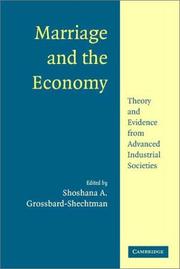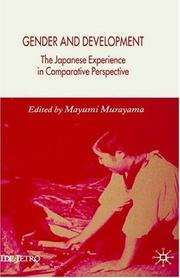| Listing 1 - 7 of 7 |
Sort by
|
Book
ISBN: 2130460941 9782130460947 Year: 1994 Volume: 125 Publisher: Paris : Presses universitaires de France,
Abstract | Keywords | Export | Availability | Bookmark
 Loading...
Loading...Choose an application
- Reference Manager
- EndNote
- RefWorks (Direct export to RefWorks)
Les relations interpersonnelles, amicales et amoureuses sont au coeur même de la vie sociale, et l'individu construit son identité à travers ses diverses relations. Les liens d'amitié et amoureux représentent un support social important. Ils permettent d'affronter les difficultés de la vie quotidienne en assurant une meilleure résistance aux événements stressants. L'ouvrage analyse, sous l'angle de la psychologie sociale, la manière dont se développent les affinités, et passe en revue les fondements théoriques du développement et du maintien des différentes formes de relations interpersonnelles.
Friendship --- Love --- Interpersonal relations --- Amitié --- Amour --- Relations humaines --- Social aspects --- Aspect social --- AA / International- internationaal --- 172 --- 15 --- Human relations --- Interpersonal relationships --- Personal relations --- Relations, Interpersonal --- Relationships, Interpersonal --- Social behavior --- Social psychology --- Object relations (Psychoanalysis) --- Gezinsmoraal. Huwelijk. Echtscheiding. --- Psychologie. --- Amitié --- Psychologie --- Gezinsmoraal. Huwelijk. Echtscheiding --- Social aspects.

ISBN: 2804403440 9782804403447 Year: 1997 Volume: 14 Publisher: Bruxelles Larcier
Abstract | Keywords | Export | Availability | Bookmark
 Loading...
Loading...Choose an application
- Reference Manager
- EndNote
- RefWorks (Direct export to RefWorks)
I. DIVORCE ET SEPARATION DE CORPS POUR CAUSE DETERMINEE: QUESTIONS DE PROCEDURE.- II. DIVORCE PAR CONSENTEMENT MUTUEL: QUESTIONS DE FOND ET DE PROCEDURE.- ANNEXES.- INDEX.
Law of civil procedure --- Family law. Inheritance law --- Belgium --- Droit de la famille --- Familierecht --- Divorce --- Divorce suits --- No-fault divorce --- Actions en divorce --- Divorce par consentement mutuel --- Law and legislation --- Droit --- 347.62 <493> --- -347.6 --- BE / Belgium - België - Belgique --- 172 --- 347.61 --- V56 Droit des régimes matrimoniaux - Huwelijksvermogensrecht --- Divorce practice --- Divorce proceedings --- Civil procedure --- Matrimonial actions --- Huwelijksrecht. Huwelijksvoorwaarden. Huwelijksformaliteiten. Nietigheid, aanvechtbaarheid van het huwelijk. Rechten en plichten van echtgenoten--België --- Gezinsmoraal. Huwelijk. Echtscheiding. --- Huwelijk. Huwelijkscontract. --- Belgium. --- 347.62 <493> Huwelijksrecht. Huwelijksvoorwaarden. Huwelijksformaliteiten. Nietigheid, aanvechtbaarheid van het huwelijk. Rechten en plichten van echtgenoten--België --- 347.6 --- Gezinsmoraal. Huwelijk. Echtscheiding --- Huwelijk. Huwelijkscontract --- Separation (Law) --- Husband and wife --- Divorce suits - Belgium
Book
ISBN: 9783034300568 3034300565 Year: 2009 Publisher: Bern Lang
Abstract | Keywords | Export | Availability | Bookmark
 Loading...
Loading...Choose an application
- Reference Manager
- EndNote
- RefWorks (Direct export to RefWorks)
What does well-being mean when we talk about men and women in the past? Their sheer chances of survival, their protection from want, their social status, their individual agency and their self-esteem were all strongly mediated by the family, the predominant social institution. Family laws and customs of family formation created differences between insiders and outsiders in terms of well-being. Within families, there were strong differences in autonomy, status and freedom between the genders and generations. The book offers a fascinating exploration of gender differences in well-being in many regions of historic Europe, with some comparative perspectives. It explores how historic family systems differed with respect to choosing a marriage partner, transmitting property, living and care conditions of widows and widowers and the position of children born out of wedlock.
Marriage --- Inheritance and succession --- Domestic relations --- Married women --- Mariage --- Successions et héritages --- Familles --- Femmes mariées --- Economic aspects --- History. --- Social aspects --- Social conditions. --- Aspect économique --- Histoire --- Droit --- Conditions sociales --- History --- Social conditions --- EUR / Europe - Europa --- 331.100 --- 331.20 --- 311.95 --- 172 --- Economische geschiedenis: algemeenheden. --- Sociale geschiedenis: algemeenheden. --- Bevolking naar het geslacht. --- Gezinsmoraal. Huwelijk. Echtscheiding. --- Successions et héritages --- Femmes mariées --- Aspect économique --- Married people --- Women --- Wives --- Married life --- Matrimony --- Nuptiality --- Wedlock --- Love --- Sacraments --- Betrothal --- Courtship --- Families --- Home --- Honeymoons --- Bequests --- Descent and distribution --- Descents --- Hereditary succession --- Intestacy --- Intestate succession --- Law of succession --- Succession, Intestate --- Real property --- Universal succession --- Trusts and trustees --- Family law --- Persons (Law) --- Sex and law --- Social aspects&delete& --- Economic aspects&delete& --- Gezinsmoraal. Huwelijk. Echtscheiding --- Bevolking naar het geslacht --- Economische geschiedenis: algemeenheden --- Sociale geschiedenis: algemeenheden --- Law and legislation --- Marriage - Economic aspects - Europe - History --- Inheritance and succession - Social aspects - Europe - History --- Domestic relations - Europe - History --- Married women - Europe - Social conditions --- Famille --- Aspects économiques --- Europe --- Aspects sociaux
Book
ISSN: 19627505 ISBN: 9782713222283 2713222281 2713231930 Year: 2009 Volume: 11 Publisher: Paris : Editions de l'Ecole des Hautes Etudes en Sciences Sociales - EHESS,
Abstract | Keywords | Export | Availability | Bookmark
 Loading...
Loading...Choose an application
- Reference Manager
- EndNote
- RefWorks (Direct export to RefWorks)
Sheds light on the challenges of reforms that need to be carried out in France which is facing an aging population. Analyzes the future prospects of the French welfare state.
Intergenerational relations --- Generational accounting --- Families --- Family policy --- Relations entre générations --- Comptabilité par génération --- Familles --- Politique familiale --- Economic aspects --- Social aspects --- Aspect économique --- Aspect social --- AA / International- internationaal --- FR / France - Frankrijk --- 339.21 --- 339.325.0 --- 202 --- 172 --- 347.60 --- Ongelijkheid en herverdeling van vermogens en inkomens. Inkomensbeleid. --- Levensstandaard en verbruikspeil (algemeenheden). --- Sociale organisatie. --- Gezinsmoraal. Huwelijk. Echtscheiding. --- Familierecht.Erfopvolgingen (algemeenheden). --- Relations entre générations --- Comptabilité par génération --- Aspect économique --- Family --- Family life --- Family relationships --- Family structure --- Relationships, Family --- Structure, Family --- Social institutions --- Birth order --- Domestic relations --- Home --- Households --- Kinship --- Marriage --- Matriarchy --- Parenthood --- Patriarchy --- Intergenerational relationships --- Relations, Intergenerational --- Relationships, Intergenerational --- Interpersonal relations --- Gezinsmoraal. Huwelijk. Echtscheiding --- Sociale organisatie --- Ongelijkheid en herverdeling van vermogens en inkomens. Inkomensbeleid --- Levensstandaard en verbruikspeil (algemeenheden) --- Familierecht.Erfopvolgingen (algemeenheden) --- Social conditions --- Intergenerational relations - Economic aspects - France --- Families - Economic aspects - France --- Family policy - France --- relations intergénérationnelles --- État-providence --- intervention publique --- vieillissement --- Statistiques commerciales --- Europe
Book
ISBN: 9782348044380 2348044382 Year: 2019 Publisher: Paris La Découverte
Abstract | Keywords | Export | Availability | Bookmark
 Loading...
Loading...Choose an application
- Reference Manager
- EndNote
- RefWorks (Direct export to RefWorks)
On sait que le capitalisme au XXIe siècle est synonyme d'inégalités grandissantes entre les classes sociales. Ce que l'on sait moins, c'est que l'inégalité de richesse entre les hommes et les femmes augmente aussi, malgré des droits formellement égaux et la croyance selon laquelle, en accédant au marché du travail, les femmes auraient gagné leur autonomie. Pour comprendre pourquoi, il faut regarder ce qui se passe dans les familles, qui accumulent et transmettent le capital économique afin de consolider leur position sociale d'une génération à la suivante. Conjointes et conjoints, frères et sœurs, pères et mères n'occupent pas les mêmes positions dans les stratégies familiales de reproduction, et n'en tirent pas les mêmes bénéfices. Fruit de vingt ans de recherches, ce livre montre que le capital a un genre. Céline Bessière et Sibylle Gollac enquêtent sur les calculs, les partages et les conflits qui ont lieu au moment des séparations conjugales et des héritages, avec le concours des professions du droit. Des mères isolées du mouvement des Gilets jaunes au divorce de Jeff et MacKenzie Bezos, des transmissions de petites entreprises à l'héritage de Johnny Hallyday, les mécanismes de contrôle et de distribution du capital varient selon les classes sociales, mais aboutissent toujours à la dépossession des femmes. Ce livre analyse ainsi comment la société de classes se reproduit grâce à l'appropriation masculine du capital.
Women --- Inheritance and succession --- Sex discrimination in economics --- Families --- Feminist economics. --- Economic conditions. --- Social aspects --- Economic aspects --- Inégalité sociale. --- Relations hommes-femmes --- Études sur le genre. --- Capitalisme. --- Successions et héritages. --- Sociologie juridique. --- Aspect économique. --- Discrimination sexuelle. --- Successions et héritages --- Famille. --- Aspect social --- 339.21 --- 332.225 --- 332.71 --- 172 --- Ongelijkheid en herverdeling van vermogens en inkomens. Inkomensbeleid --- Vrouwenlonen --- Vrouwen- en jongerenarbeid --- Gezinsmoraal. Huwelijk. Echtscheiding --- Women - France - Economic conditions. --- Inheritance and succession - Social aspects - France. --- Sex discrimination in economics - France. --- Families - Economic aspects - France. --- Capitalisme --- Femme --- Famille --- Etude de genre --- 340 --- economie --- économie --- Feminist economics

ISBN: 0521891434 1107133785 1280161302 0511120583 0511205929 0511308671 0511615868 0511073380 0511064926 9780511064920 9780511120589 9781280161308 9780511073380 9786610161300 6610161305 0521814545 9780521814546 0521814545 9780521891431 9780511615863 Year: 2003 Publisher: Cambridge Cambridge University Press
Abstract | Keywords | Export | Availability | Bookmark
 Loading...
Loading...Choose an application
- Reference Manager
- EndNote
- RefWorks (Direct export to RefWorks)
Marriage and the Economy explores how marriage influences the monetized economy as well as the household economy. Marriage institutions are to the household economy what business institutions are to the monetized economy, and marital status is clearly related to the household economy. Marriage also influences the economy as conventionally measured via its impact on labor supply, workers' productivity, savings, consumption, and government programs such as welfare programs and social security. The macro-economic analyses presented here are based on the micro-economic foundations of cost/benefit analysis, game theory, and market analysis. Micro-economic analysis of marriage, divorce, and behavior within marriages are investigated by a number of specialists in various areas of economics. Western values and laws have been very successful at transforming the way the world does business, but its success at maintaining individual commitments to family values is less impressive.
Economics --- Families --- Industrialization --- Marriage --- Married people --- Social values --- 172 --- 201 --- 332.71 --- 339.325.1 --- 347.61 --- AA / International- internationaal --- Values --- Married couples --- Married persons --- People, Married --- Persons, Married --- Couples --- Marital status --- Spouses --- Married life --- Matrimony --- Nuptiality --- Wedlock --- Love --- Sacraments --- Betrothal --- Courtship --- Home --- Honeymoons --- Industrial development --- Economic development --- Economic policy --- Deindustrialization --- Family --- Family life --- Family relationships --- Family structure --- Relationships, Family --- Structure, Family --- Social institutions --- Birth order --- Domestic relations --- Households --- Kinship --- Matriarchy --- Parenthood --- Patriarchy --- Economic theory --- Political economy --- Social sciences --- Economic man --- History --- Economic aspects --- Employment --- Gezinsmoraal. Huwelijk. Echtscheiding --- Sociologie: algemeenheden --- Vrouwen- en jongerenarbeid --- Evolutie van de consumptie. Budget van de huishoudens --- Huwelijk. Huwelijkscontract --- Social aspects --- Social conditions --- Business, Economy and Management


ISBN: 1403949441 9781403949448 1349525685 9786610564767 1280564768 0230524028 Year: 2005 Publisher: Hampshire Palgrave Macmillan
Abstract | Keywords | Export | Availability | Bookmark
 Loading...
Loading...Choose an application
- Reference Manager
- EndNote
- RefWorks (Direct export to RefWorks)
Although Japanese economic development is often discussed, less attention is given to social development, and much less to gender related issues. By examining Japanese experiences related to gender, the authors seek insights relevant to the current developing countries. Simultaneously, the book points out the importance for Japanese society to draw lessons from the creativity and activism of women in developing countries.
Women in development --- Women --- Social change --- Social conditions --- Economic conditions --- JP / Japan - Japon --- 332.71 --- 311.95 --- 172 --- 338.022 --- 338.8 --- J4176 --- J4129 --- J4290 --- Vrouwen- en jongerenarbeid. --- Bevolking naar het geslacht. --- Gezinsmoraal. Huwelijk. Echtscheiding. --- Toegevoegde waarde. Theorie van de meerwaarde. --- Economische groei. --- Japan: Sociology and anthropology -- gender roles, women, feminism --- Japan: Sociology and anthropology -- cross-cultural contacts, contrasts and globalization --- World: Sociology, anthropology and culture --- Certainty. --- Social change - Japan. --- Women - Japan - Economic conditions - 20th century. --- Women - Japan - Social conditions - 20th century. --- Women in development - Developing countries. --- Women in development - Japan. --- Women in development. --- Gender Studies & Sexuality --- Gender & Ethnic Studies --- Social Sciences --- Human females --- Wimmin --- Woman --- Womon --- Womyn --- Females --- Human beings --- Femininity --- Development and women --- GAD (Gender and development) --- Gender and development --- WAD (Women and development) --- WID (Women in development) --- Women and development --- Change, Social --- Cultural change --- Cultural transformation --- Societal change --- Socio-cultural change --- Social history --- Social evolution --- Gezinsmoraal. Huwelijk. Echtscheiding --- Bevolking naar het geslacht --- Vrouwen- en jongerenarbeid --- Toegevoegde waarde. Theorie van de meerwaarde --- Economische groei --- Women in development - Japan --- Women - Japan - Social conditions - 20th century --- Women - Japan - Economic conditions - 20th century --- Social change - Japan --- Women in development - Developing countries --- Femmes dans le développement --- Femmes --- Japon --- Conditions sociales --- Conditions économiques
| Listing 1 - 7 of 7 |
Sort by
|

 Search
Search Feedback
Feedback About UniCat
About UniCat  Help
Help News
News